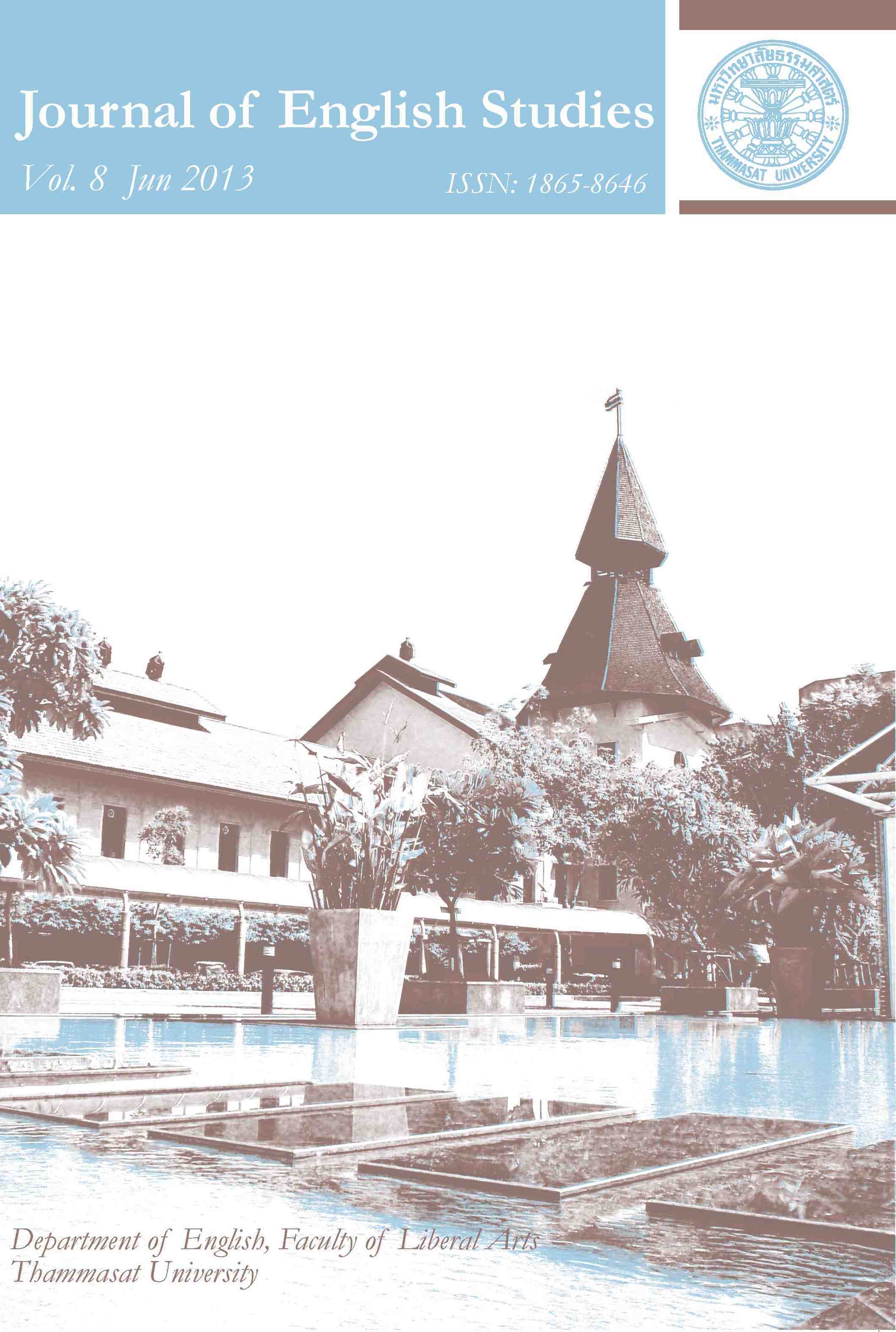Thai University Students’ Voices Heard: Aspired Pronunciation Model
Main Article Content
Abstract
It has been agreed at the ASEAN Summit, the English language is positioned to becoming the working language of the region. To comply with this decision, it is essential that Thai students be prepared to be competent in the English language, particularly for international communication, through a modification of the present teaching and learning paradigms. When it comes to English pronunciation, little is known to date about Thai university students’ aspiration with regards to their pronunciation models. In order to shed some light into the issue, one questionnaire survey was conducted, in this study, to examine Thai university students’ attitudes about their English pronunciation to the question of conforming to native speaker norms or to the ideologies of WEs, EIL, or ELF which focus on intelligibility. The analysis of 387 responses from first and second year students studying in a public university demonstrates that Thai university students hold more favorable attitudes towards the model of native speakers, and that their views tend to differ from the expectations of teachers and academics. It is therefore of utmost importance for educators to take these views into consideration when making decisions related to national educational plans for English.
Keywords: EIL, pronunciation, aspired model, learners of English, university students
Article Details
How to Cite
Kanoksilapatham, B. (2014). Thai University Students’ Voices Heard: Aspired Pronunciation Model. Journal of Studies in the English Language, 8. retrieved from https://so04.tci-thaijo.org/index.php/jsel/article/view/18186
Issue
Section
Articles
Authors who publish with this journal agree to the following terms: Authors retain copyright and grant the journal right of first publication with the work simultaneously licensed under a Creative Commons Attribution License that allows others to share the work with an acknowledgement of the work's authorship and initial publication in this journal. Authors are able to enter into separate, additional contractual arrangements for the non-exclusive distribution of the journal's published version of the work (e.g., post it to an institutional repository or publish it in a book), with an acknowledgement of its initial publication in this journal. Authors are permitted and encouraged to post their work online (e.g., in institutional repositories or on their website) prior to and during the submission process, as it can lead to productive exchanges, as well as earlier and greater citation of published work (See The Effect of Open Access).


